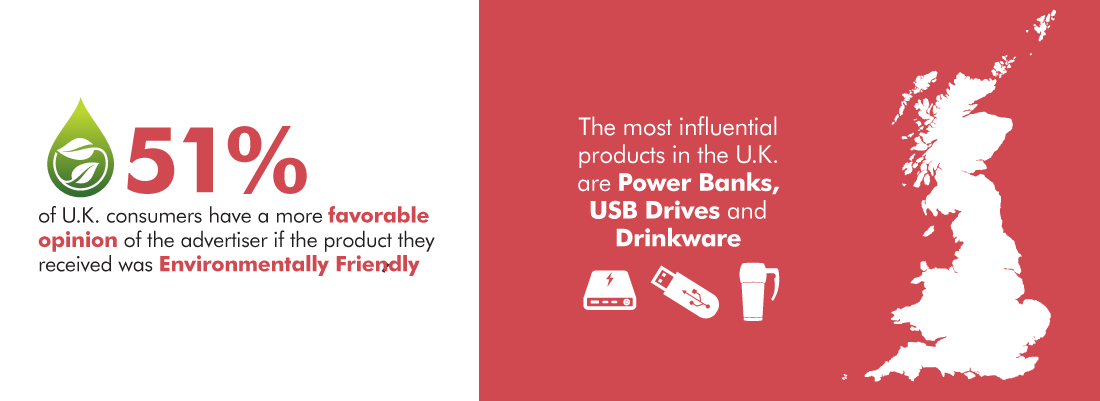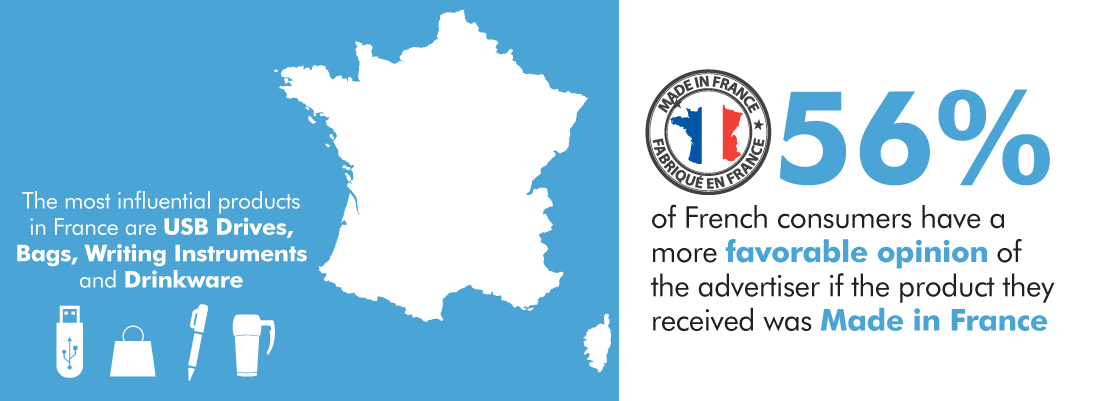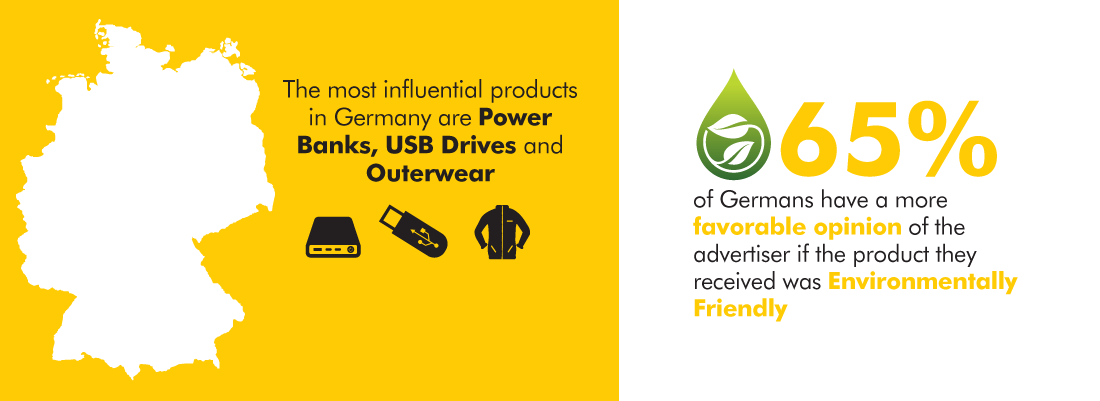For a growing number of large, well-capitalized promotional products firms, international expansion is suddenly all the rage.
Sure, the stateside promo industry has long relied on a worldwide supply chain, sourcing products from China and other lower-cost labor nations. But that’s not what this latest trend is about. Rather, there’s been an intensifying emphasis among some high-revenue U.S. distributors – and select suppliers too – to expand their boots-on-the-ground sales efforts into international markets through acquisitions, partnerships and/or establishing new offices under their brand umbrella. Interestingly, firms from the United Kingdom are also working to build a strong presence in the North American promo space, which at $24.7 billion in 2018 revenue is significantly bigger than their domestic market.
Admittedly, the expertise and financial/operational resources required to navigate the tangled web of international business appears to relegate the expansion effort to firms at the top of the promo products food chain. Still, among those with the means, eyes are looking ever more eagerly abroad - a reality confirmed by recent expansions and a general consensus among executives that companies with an international presence will attempt to grow their overseas' reach.

"It’s pretty basic really: New markets mean more potential customers." Debbie Abergel, JNI
“Over the next few years, we’re likely to see more distributors pursue international expansion opportunities,” says David Nicholson, president of Top 40 supplier PCNA, the stateside division of Polyconcept, which operates on five continents. “I believe it’ll still be a relatively select group, as the complexity of managing an international business isn’t easy, but it’ll be an accelerating trend.”
Venturing Abroad
American promo firms doing business internationally isn’t a new phenomenon. Jack Nadel International (JNI; asi/279600) executives, for instance, point out that their Los Angeles-headquartered firm has also operated in Europe for decades. Still, in recent years, the emphasis on getting a physical foothold in foreign markets appears to be ramping up.
A year ago, Top 40 distributor Geiger (asi/202900) acquired U.K.-based BTC Group, rebranding the distributorship as GeigerBTC. In January, the British firm, with backing from its parent company, announced the acquisition of London-based EMC Advertising Gifts. In 2016, Top 40 firm BDA (asi/137616) opened an office just outside London. The Washington-based distributor followed that up in 2017 with acquisitions of U.K.-based agency Sports Merchandise Global (SMG) and Dukes of London – another British distributorship. “We’re seeing an increase in U.S. players buying into the U.K./EMEA market with recent significant acquisitions,” says Sarah Penn, CEO of Outstanding Branding (asi/288519), a London-headquartered distributorship.
2.5%
Forecasted growth of the U.S. economy in 2019
1.6%
Economic growth forecast for the Euro Zone in 2019
$13.457
Trillion
Estimate of China’s nominal GDP in 2018
On the supplier side, Minnesota-based Sign-Zone, parent company of Showdown Displays (asi/87188), stretched its reach throughout much of Europe in October 2018 via the acquisition of Jansen Display Group – a Czech Republic-headquartered company that designs and manufactures customized poster systems, snap frames, poster boards and more. Little more than a month later, Top 40 supplier Next Level Apparel (asi/73867) shared the news that it was expanding into Britain through an exclusive partnership with PenCarrie, a U.K. clothing wholesale distributor. Then, in mid-December, Next Level revealed a partnership with Germany’s L-SHOP TEAM, a textile distributor that will take the California clothier’s threads into Germany and other European Union markets.
“We’re dedicated to adding a new dynamic to the German/EU market and earning another loyal fan base,” Next Level CSO Mark Seymour said when announcing the L-SHOP deal.
Meanwhile, more international promo firms are increasing their sales efforts in North America. Already with operations throughout Europe, England-based Brand Addition (asi/202515), one of Europe’s largest distributorships, made a splash in 2016 when it acquired prominent American distributor GatewayCDI. The deal came the year after Brand Addition expanded its buying operations in Asia to include a sales force.

Notably, Elysian Capital, a U.K. private equity firm that backs Brand Addition, acquired Facilisgroup, a North American promo tech and consulting group that represents companies with around a half a billion dollars in annual sales, last year. And speaking of industry groups: A deal announced in January saw promo-focused tech company Altitude Group Plc, a firm publicly traded in the U.K., acquire Philadelphia-headquartered promo buying group Advertising Industry Mastermind.
Additionally, Penn’s Outstanding Branding incorporated in the U.S. in 2017, and now has an office in New York and sales reps in Washington D.C. and New Mexico. After establishing roots in Delaware over a couple years and exceeding $6.5 million in sales its first year, EverythingBranded USA (asi/160791), the American division of U.K.-based Charles Alexander Distribution, further entrenched itself in the U.S. market by opening a Las Vegas office last year. “Our ultimate goal is to be a Top 40 distributor by the end of 2019,” CEO/founder Paul Rowlett told Counselor last year. “It’s more passion than arrogance. We’re here to stay.”
Why Expand Internationally?
As distributors tell it, client need has been a key catalyst compelling the movement abroad. “The world is getting smaller,” says Penn. “More and more clients are looking for a global solution, so they get the same standards and service in each of their regions and, where possible, products in common too.”
Indeed, after a U.S. software firm expanded eastward, Outstanding Branding earned the company as a customer, handling merchandise solutions throughout Europe, the Middle East and Africa. Impressed with Outstanding Branding, the company wanted the British outfit to support its U.S. promo products efforts as well. To provide the best service, Outstanding Branding felt it would be necessary to have a stateside presence – a determination that was an important factor in spurring the distributor to set up shop this side of the Atlantic.
“For a client, there’s nothing quite like knowing the same people are responsible for looking after you wherever you are,” says Penn.
Geiger CEO Gene Geiger offers a similar perspective. He says a lengthening list of corporate customers and prospects want distributors that can help them manage branded merchandise programs – sourcing, selling and delivering – where they have operations abroad. Having talented people who are from, live in, work in and intimately understand those different geographic markets is pivotal to providing clients the best service and solutions across various regions, Geiger says. So far, it’s worked out for the Top 40 firm: GeigerBTC’s year-over-year growth was 40% – far better than the 10% U.S. Geiger executives were aiming for.

"Over the next few years, we’re likely to see more distributors pursue international expansion opportunities." David Nicholson, Polyconcept North America
“After we acquired our GeigerBTC division, we realized how much better we can communicate, follow up and generally support the local units of our U.S.-based program customers overseas,” says Geiger. “At the same time, we had operational and technical capabilities that enabled GeigerBTC to be more effective. For example, by working to reduce the paperwork that consumed them, we freed up time for them to interact with and sell more to their customers. We’ve been amazed at how complementary our mutual strengths have been.”
Distributors say the international footprint is a critical marketing and selling advantage when courting high-spend prospects in the U.S. with a worldwide reach. “We work with a number of global brands that select us because of our ability to sell and deliver to buyers across the globe,” says Marc Simon, CEO of Top 40 distributor HALO Branded Solutions (asi/356000).
Of course, the push toward being a transnational solution provider also stems from the simple fact that new markets present additional opportunities to compete for fresh clients in those locales – something that’s proven especially attractive in recent years given the relative economic strength of particular overseas markets, including Europe. The impetus to pursue international prospects isn’t a result of believing that the U.S. promo market has fully matured, distributor executives say, but rather a proactive outgrowth of a driving ambition to generate revenue gains that large firms now feel are within their reach.

“It’s pretty basic really: New markets mean more potential customers,” says Debbie Abergel, chief strategy officer at JNI, whose international sales operations include Europe and Latin America.
Naturally, the reasons American suppliers go abroad also include the chance to capture new clients. But it’s about more than that. For one thing, certain suppliers feel distributors with international operations could be more inclined to work with them on end-client programs. Indeed, they say they can provide superior consistency across markets, as well as services and solutions tailored to particular countries/regions given their presence there.
Other factors come into play, too. “Obviously another market will lead to new sales, but we also expect new knowledge that can make us better in our current markets,” says Next Level’s Seymour. That can include getting ahead of the curve on trends before they come to North America.
6.6%
Year-over-year growth of China’s economy in 2018, which represents the slowest annual rate rise since 1990
6.2%
Estimated growth rate of China’s economy in 2019
$2.848
Trillion
Estimated size of India’s GDP in 2018
In a related vein, Sign-Zone, Showdown Displays’ parent company, says operational advantages and enhanced product offerings are another reason to go overseas. In acquiring Jansen, Sign-Zone obtained a relatively low-cost manufacturing facility for creating custom products, an expanded product line that will help bolster North American offerings, and a company with considerable experience executing across different national markets in Europe.
“North America absolutely remains our top priority, and there are synergies we’ve gained through this acquisition that will make us better here and allow us to have success throughout Europe,” says Sign-Zone President/CEO John Bruellman.
How It’s Happening
When it comes to international expansion, acquisitions, partnerships or establishing “in-house” offices under the company flag are among the options for growth. For some firms, a combination of different methods is ideal. HALO, for instance, has London and Rotterdam offices that came through acquisitions, but also has partnerships that allow the Sterling, IL-based company to sell in other countries. Notably, though, “the majority of sales are made through our proprietary online company store platform, which allows buyers in different countries to order culturally appropriate products in their home language and currency,” says Simon.
In addition to its U.K. acquisitions, Geiger is a member of the World Advertising Gift Exchange, a global partnership group of distributors. “We share information and, in a number of cases, collaborate to serve global customers,” says Geiger.
For Bruellman, acquisitions are the best route forward. “When you can buy a reliable company that aligns with your values, that’s already had success in the market and understands the culture or cultures where you’ll be operating, to me that’s more advantageous than trying to build from scratch on your own,” he says.

"After we acquired our GeigerBTC division, we realized how much better we can communicate, follow up and generally support the local units of our U.S.-based program customers overseas." Gene Geiger, Geiger
Top 40 distributor BAMKO (asi/131431) sees it a bit differently. “We’ve opted to keep our international presence in-house,” says Joshua White, general counsel and SVP of strategic partnerships at BAMKO, which has sales offices in Brazil and India, as well operations in China, Vietnam and elsewhere in Latin America. “Maintaining a consistent company culture across continents has always been the primary consideration as we’ve expanded our geographic footprint. It’s incredible to walk into our offices around the world and feel the unique BAMKO spirit that makes our company special.”
When considering international expansion, it’s important to understand your objectives, weigh the options, assess the risks, and then decide what method is best for your company given the particulars of each situation, industry executives say. “When we expanded our buying operations in Asia to include a sales office, we did so because we felt an acquisition in this market was too high risk,” says Chris Lee, CEO of Brand Addition. “When we made the decision to move into North America, due to the maturity and sophistication of the local market, we decided to invest in an established business through acquisition.”
International Isn’t Easy
Increased sales, new clients, capturing more of global customers’ spend, getting a head start on trends – all are potential upsides of doing business abroad. But to realize those benefits, distributors and suppliers must prevail over a host of challenges.
For starters, firms must take into account the considerable costs of expansion, time zone differences, potential linguistic hurdles and cultural factors, which can include market tempo and product preferences. “The mistake many U.S. companies make when expanding abroad is to assume those markets operate and behave much like the U.S.,” says Polyconcept’s Nicholson. “That’s very much not the case. Europe, for example, is still very regional. To be successful, you need to appreciate and recognize those differences.”
Disparate regulations on everything from taxes to product safety compliance and labor laws also complicate matters. “Expansion into Europe includes additional challenges like General Data Protection Regulation and, in some cases, political instability, a current example of this being Brexit,” says Peter Kelly, CEO of National Pen, a distributor divison of Top 40 distributor Cimpress (asi/162149), that has offices around the world. “Overcoming these challenges can be expensive and takes time and careful planning.”
7.5%
Projected growth rate of India’s GDP in 2019
2.5%
Estimated growth of Brazil’s economy in 2019
7.1%
Estimated fiscal 2018 deficit in Brazil in relation to its GDP
In addition to extensive research and vetting of potential partners, acquisition targets, locations and more, some distributors have connected with businesses/organizations that assist with acclimation to overseas markets. “We developed our expertise over a substantial period of time and worked with outside experts in international business – legal, taxation and distribution – to make sure we could execute effectively,” says HALO’s Simon.
When coming to the U.S., Outstanding Branding “didn’t know enough about taxes, payroll, HR and contracts, so we joined BritishAmerican Business, which exists to support businesses that operate on both sides of the Atlantic,” says Penn. “Through them, we developed relationships with businesses that could help us with all of those areas.”
Even with such help, efforts can fall flat if expanding firms fail to have capable leadership and quality teams that are expert in the foreign markets. “We got very fortunate early on with really good leadership on the ground,” says BAMKO’s White. “That allowed us to slowly understand and navigate the unique cultural differences. Figuring it out on our own would have been impossible. Starting small and slow was the key to sustainable success.”

Adds Geiger: “Decisions made from the U.S. perspective are likely to be flawed. One needs to have local staff whose insights must be listened to. Not telling GeigerBTC how they have to run their U.K. business has been essential to success.”
Expect More Expansion
While going international necessistates navigating choppy business waters, distributors Counselor spoke with say they want to pursue more overseas opportunities. “We anticipate expanding to other markets as customer requirements demand and as opportunities arise,” says Geiger. “We feel we have to be stronger in Asia and the Middle East.”
BDA CEO Jay Deutsch adds: "Europe, the U.K., Canada and China continue to be the primary global markets we're focusing our expansion plans around. We're actively in discussions and anticipate doing more acquisitions. We're always open to talking and meeting with good companies that share our business outlook."
BAMKO continues to cast eyes abroad too. “If we feel there’s a market opportunity and we can add value, we dive in,” says White.
While executives think international wing-spreading will remain more prevalent on the distributor side of the business, some suppliers foresee international growth in their cards, too. “Our goal is be the global leader in signs and displays,” says Bruellman of Sign-Zone/Showdown Displays. “To do that, we have to be strong in North America and Europe, and eventually have a presence elsewhere as well.”

"Expansion into Europe includes additional challenges like General Data Protection Regulation and, in some cases, political instability, a current example of this being Brexit." Peter Kelly, National Pen
The way some executives see it, the recent accelerated momentum toward international business from some top promo firms could play a part in propelling competitors that currently don’t have overseas operations to consider foreign expansion. “When one company makes a move and then another, others tend to say, ‘We should do that,’” says Lee, adding: “I think there might be more partnership arrangements than full acquisitions on the horizon between Europe and the U.S.”
Like other executives, Geiger thinks client demand will fuel more promo companies to investigate branching out abroad. Still, it’s likely success will be limited to industry leaders with strong technological infrastructure, established leadership teams and deep financial resources, executives believe. “I think the idea of going international is attractive,” says Deutsch, “but the reality is it’s challenging work and resource-intensive. Without a certain level of scale, it’ll be hard for distributors to deliver a meaningful return on investment.”
Even so, in an economy that's ever more global, it won't be a surprise if many more promo firms aim to do just that.
